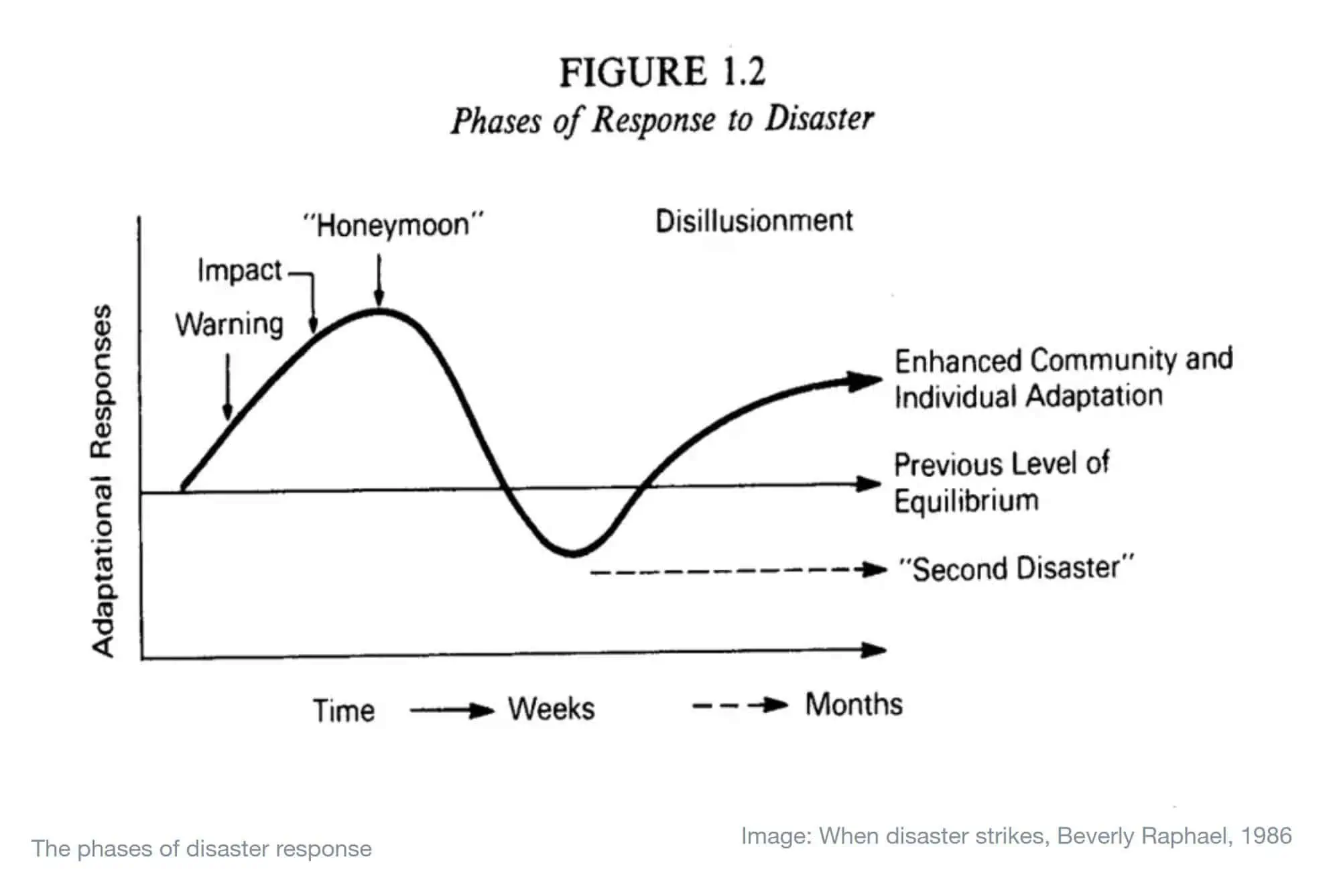This is a guest blog by Peter C. Atherton, P.E.
What We Need to Know About Human Disaster Response and Trauma
There is no doubt that we as leaders and team have been going through a season of much higher fear, anxiety, and trauma with the COVID-19 crisis and the very visual revealing of racial injustice and inequities previously ignored.
Our stressors are also multifaceted and connected with different concerns.
On one hand, our concerns are related to health, economics, isolation, and an uncertain and non-uniform re-opening. On the other hand, our concerns are related to seeing large gaps in long-standing social constructs associated with equality, justice, and inclusion.
Concurrently we begin to work through the “peaks,” medically and in terms of concerns over our organization’s near-term financial health, and as we begin to better listen, understand, and take new actions as citizens and society, the fact is that we will not — and must not — just return to “normal.”
Between then and now, however, there are things we need to know and steps we need to take to help ease concerns and come out of these periods of crisis stronger, better, and more resilient.
What We Need to Know
There will be a dip.
No matter how well we have responded as an individual, team, or organization to these situations to date, we will see a dip. The fear, anxiety, and trauma we’ve experienced and are experiencing is similar to that of a disaster.
As shown in the graphic above, there is a natural human response to a disaster.
It just makes sense too — even when comparing to a simple, yet stressful event we often experience and can largely control. If we switch out the word “disaster” and adjust the timing, we experience a similar curve with adrenaline and mindset in response to a “major presentation” or “major project deliverable.”
In this analogy, we have a “warning” that a deadline is coming, we ramp up focus and production, have “impact” as we make sacrifices with our normal day-to-day activities in order to deliver what’s needed, and achieve “honeymoon” status once we’ve successfully done what we needed to do.
There is then a dip the next day or over the next several days in both physical energy and our outlook. Even when we’re confident that we performed well, we may question some things or wish we could have done better. In those instances, we can quickly return to “normal” with an enhanced feeling of accomplishment, and even more ready for the next presentation or project. In cases where we didn’t perform well or know we could have done more, the dip may be greater and last longer until we are more resilient as a result.
On the other hand In the case of the COVID-19 pandemic, leaders and leadership teams have heeded the “warning,” taken “impact,” and met at least the first of what could be multiple peaks.
In the case of our changing social constructs, we’re earlier in the curve and learning more.
The issue we must be aware of for both COVID-19 and social equality and justice, however, is not short-term physical adrenaline — it’s longer-term psychological stress and strain, and even burnout and disengagement.
What We Need to Know
At first , we need to better understand what is happening and what’s likely to come next.
Here is a link to a World Economic Forum article that presents data and perspectives on what we’re up against in terms of a secondary COVID-related epidemic of burnout and stress-related absenteeism in the workplace, and includes the graphic presented above.
Also, A similar response curve is likely to apply to the trauma and stresses related to fully visualized injustice and inequities and our calls for change.
In this case my recommendation is to review this information and response sequence openly with your leadership team and talk about how it applies.
You Should Also:
- Talk about what you did and are doing right, what you wish you could do over, and what you would do differently as the waves and the work continues.
- Share where you are individually and as a team.
- Determine how you can best share and discuss this information with — and get feedback from — your managers and your organization as a whole.
After all no matter how you’ve responded to date, taking the lead now as leaders and leadership teams gives us the best opportunity to connect with and walk through the next and final phases of these moments better, faster, stronger, and more resiliently.
It is also our best path to enjoy the benefits of higher levels of employee engagement, loyalty, and retention long after we return to our new and better “normal.”
Please reach out to me if you’d like to discuss more about this and outline strategies that can work best for you and your organization during these critical periods of change.
About the Author:

Pete is also the host of The AEC Leadership Today Podcast (https://actionsprove.com/podcast/) and leads The AEC Leadership Mastermind (http://www.actionsprove.com/what-we-do/mastermind).
Pete works with AEC firms to grow and advance their success through better strategic planning, executive coaching, leadership and management development, performance-based employee engagement, and corporate impact design. Connect with him at [email protected].
We would love to hear any questions you might have or stories you might share about how you plan to get ahead of the next curve as a leader and team.
Please leave your comments, feedback or questions in the section below.
To your success,
Anthony Fasano, PE, LEED AP
Engineering Management Institute
Author of Engineer Your Own Success







